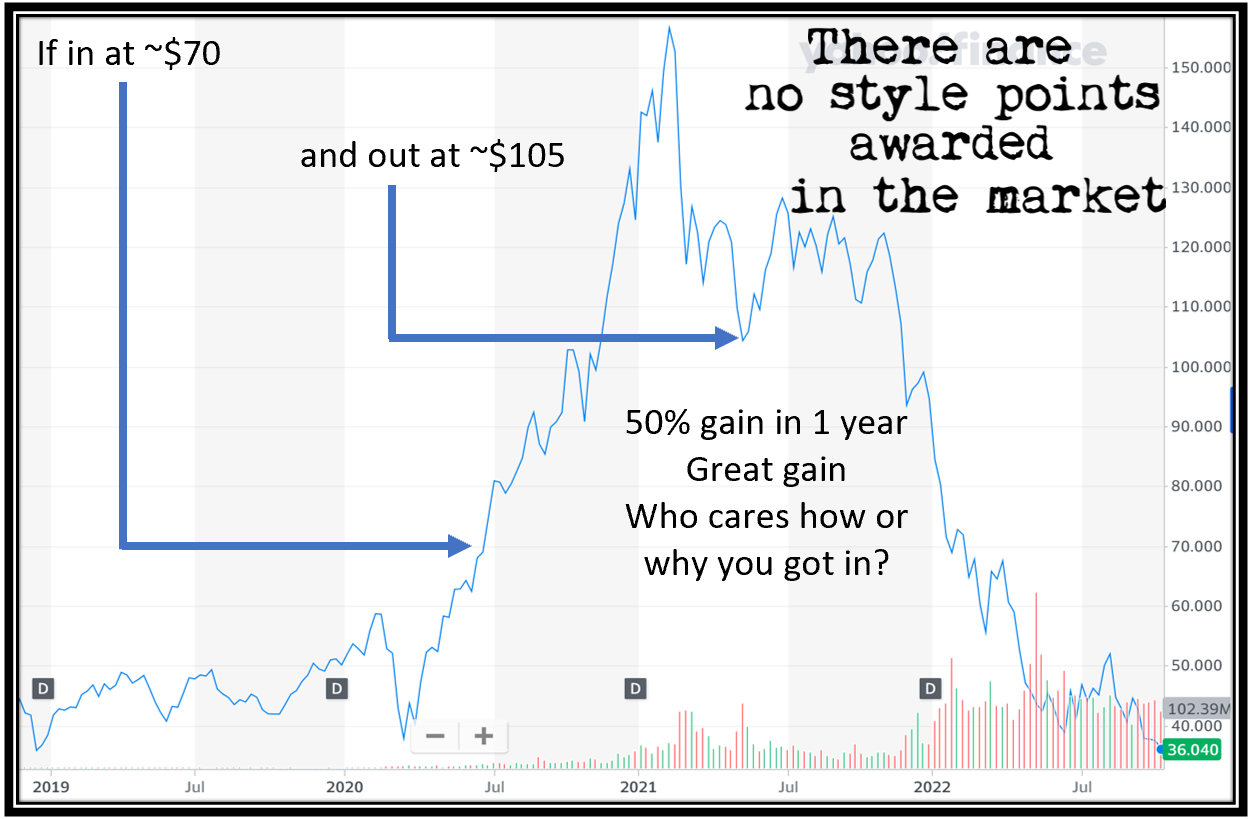There are no style points awarded in the market

Strengthening and weakening matter, not how much analysis you conducted. And - determine your holding period based on the action of your stock, not based on IRS rules or what that Yahoo! hired financial writer was paid to tell you.
What does the above mean?
Strengthening and weakening matter
Mine is simply a response to a concept you'll commonly see in the press. I have previously written "It really doesn't have to be so complicated" which included the following from LinkedIn:

Really? This sounds amazingly complicated.
I don't subscribe to this. I believe there is a better way. Perhaps I'm misunderstanding the idea, but there's a level of "must know everything about everything about a stock."
On its face, there is nothing wrong with this. But it fails to acknowledge the 20% of the information that determines 80% of the results: market conditions matter. And they matter more than anything to do with any individual stock. When the market is strengthening, odds are higher of any individual stock enjoying positive returns during any given period.
And this leads to...
Determine your holding period based on the action of your stock
Two points to be made here.
First - many people decide holding periods with an eye toward capital gains time frames. The market does not care about artificially determined time frames and neither should you. Absent a specific reason for needing the proceeds, having tax deadlines dictate selling decisions is letting the tail wag the dog.
Second - many follow the guidance in the press (such as websites like Yahoo!) and on other sites (social media) to be a long term buy and holder. The issue with this? As I mentioned in that post linked above:
...what LTBH doesn’t have is a rule for getting out.
There is a thesis for getting in - the market tends to go up over time, and there has never been a 20-year period when the U.S. stock market has been negative so just get in and stay in - but a sound process requires having a reason to exit. There were three episodes in 20 years when the S&P 500 lost 34% to well over 50%. To blindly hold through three such declines seems unsound at best and, frankly, stupid at worst.
I'm certain others will point out that Warren Buffett and Berkshire Hathaway never sold out completely, thus negating my point, but the existence of one exception who may be the best investor of all time is realistically the exception that proves the rule.
Anyone arguing that it was better just to hang in is not being serious. Such big losses by themselves are massively damaging, as a 33% loss requires a 50% gain to get back to break-even. But these losses are for the index, meaning individual stocks can certainly be down much more.
And vice versa, of course. Though this does not negate the basic point.
Your process must have both a thesis for getting in and a thesis for getting out, otherwise the process is not sound. My thesis for getting in is market conditions are supportive of more stocks rising and an individual stock is strengthening, while my thesis for getting out is stock-specific (doesn't matter what overall conditions are) and I exit when the individual stock is no longer strengthening.
This is a non-negotiable component of my process as it enforces discipline. So long as this process is logical, it will support attractive outcomes - which is all one can expect. Process can be controlled, outcomes cannot. So make your process logical.
